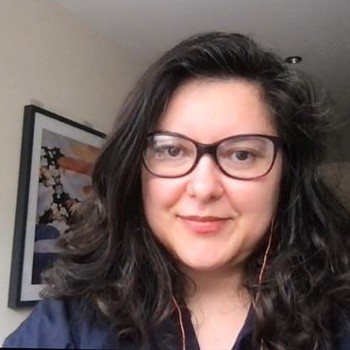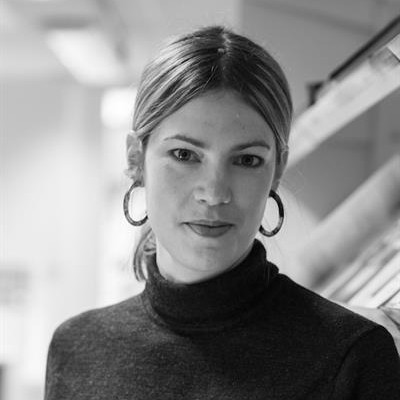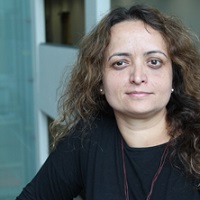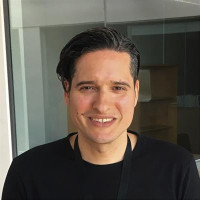Our Communication PhD programme helps you produce original, socially relevant research that deals across the areas of advertising, strategic communication, public relations or journalism.
Key information
| Starting date | Deadline for application |
|---|---|
Duration
Communication Postgraduate research degrees PhD/MPhil course Overview
The PhD in Communication provides you with the academic and professional opportunities to develop as an independent, creative and original thinker who is capable of contributing to knowledge and research at the forefront of the discipline.
You will work closely with a supervisory team, whose areas of expertise align with your chosen topic.
You will be based in the dynamic Department of Media, Culture and Creative Industries, which is committed to forward-, outward- and industry-facing research. (You may, however, be assigned a supervisor or supervisors from the Department of Journalism, if relevant to you topic.) The training that you will receive and the research that you will conduct should have real-life application, both within and beyond academia
Our research strengths and areas of supervisory expertise include:
- advertising
- health communications
- communication policy
- law and ethics
- political communication
- social media
- public relations (PR)
- strategic communication
- AI, innovation and communication
- conflict and crisis (conflict reporting, climate reporting; democracy and media freedom gender, communication and journalism).
For more information on our supervisory strengths, see our Media and Communications department page.
You can also see our staff listing here.
Structure
You will initially register as an MPhil/PhD student. After the completion of a minimum period of registration (one year for full-time and two years for part-time students) you will be eligible to submit an application for upgrading.
Following approval of your progress at the Upgrade Panel, you will complete a 75,000-100,000 word research project that makes an original contribution to the field, satisfies peer review and merits publication.
Your project will be submitted to two examiners, one external and one internal, who will prepare separate, independent reports on its suitability for the award.
They will then conduct an oral examination, in which you will have the opportunity to defend your research and to demonstrate deep knowledge and understanding of the field of study and originality of thought. The examiners will then prepare a joint report that details their evaluation of your research.
For full details about City’s PhD/MPhil programme structure, please see the Guide for Research Students.
Your progress and training needs are regularly assessed during your studies, and you will participate in a range of activities during the programme to improve your research and writing skills and to prepare you for future employment.
Requirements
Applicants should normally:
- Hold at least a good 2.1 BA qualification or equivalent
- Hold an MA qualification with at least Merit or an equivalent qualification
- Have studied Media, Film, Television, Cultural Studies or another relevant subject in the social sciences or humanities
Non-traditional applicants will be considered if they can demonstrate substantial research experience or evidence of relevant professional experience or publication.
English requirements
Under City regulations research theses must be submitted in English. Candidates whose first language is not English will be required to show evidence of a high standard of written and spoken fluency.
Examples of this evidence include a degree from a British or other Anglophone university or a minimum overall score of 7.5 and no less than 7.0 in any of the subtests (Listening, Reading, Writing, Speaking) in the International English Language Testing System (IELTS) administered by the British Council. For further information about IELTS, please see their website.
For more information see our main entry requirements page.
Visa requirements
If you are not from the European Economic Area / Switzerland and you are coming to study in the UK, you may need to apply for a visa or entry clearance to come to the UK to study.
The way that you apply may vary depending on the length of your course. There are different rules for:
- Students on courses of more than six months
- Students on courses of less than six months
- Students on a pre-sessional English language course.
For more information see our main Visa page.
Fees and funding
Full-time Home/UK:£5,110 per year
Part-time Home/UK:£2,560 per year
Full-time International:£13,630 per year
Part-time International:£6,810 per year
Fees for doctoral candidates are charged annually and cover registration, supervision and examination.
Fees are subject to review each year and may vary during your period of registration. Where applicable, fees for City's programmes will be subject to inflationary increases in each academic year of study commencing in September.
Our policy for these increases is set out in our terms and conditions of study.
Our scholarships are when the University pays towards your Study fees. You may also be eligible for further funding.
Support for PhD study
Prospective students are encouraged to explore doctoral Grants and funding opportunities such as:
Research Council studentship awards, if available.
Our bursaries are non-repayable sums of money granted by the University, usually based on need.
Our loans are repayable sums of money granted by the University or other body.
Postgraduate Doctoral Loans
The Government has introduced a new Postgraduate Doctoral Loans scheme which can provide a loan of up to £25,000.
This will be over three years to support study for a doctoral degree.
A Postgraduate Doctoral Loan can help with course fees and living costs while you study. It can be used alongside any other forms of support you may be able to receive.
For more information, please see our Postgraduate Doctoral Loans page.
Additional expenses
Some of our degrees may involve additional expenses which are not covered by your tuition fees. Find out more about additional expenses.
Academic support
City has a well-established structure and processes to support your research.
Supervision
Research students are normally appointed a supervisory team consisting of at least two supervisors. One of these will be designated as the first point of contact with responsibility for ensuring effective supervision is provided. You will have regular meetings with your supervisors.
Training
In order to support your development, your supervisors will also encourage and support you in skills-based learning in public engagement (i.e. communicating research findings to industry, press and the wide public to ensure its application and impact), public speaking (to different audiences, including students), scholarly and popular publication and so on.
In your first year you will be expected to engage with the generic and subject-specific training, appropriate methods modules and research and training workshops as necessary.
In subsequent years you will be expected to attend specialist training sessions such as departmental research seminars; research student seminars; research student meetings; research studies workshops; and national/international meetings and conferences.
PhD students who teach benefit from a mentoring scheme and are required to attend the module EDM120 (‘Learning, Teaching and Assessment’) from City’s MA in Academic Practice.
The Doctoral College also provides a set of online research skills training modules and associated group sessions, including sessions on Research Methods in the Arts and Humanities, Research Methods in Social Sciences and Research Methods in Literature Review .
How to apply
The admission of research students is dependent upon many factors, one of which is the expertise of our academics currently available in the Department.
Potential applicants should therefore check the current research interests of staff members before making an informal enquiry. If appropriate supervisory expertise is available, potential applicants should initially approach Senior Tutor for Research, Troy Chen, before submitting a formal application.
We accept applications on an ongoing basis for entry normally in September/October. To apply, you should submit the following documents:
- The Online Research Degree Application Form
- A research proposal of no more than 2000 words (excluding bibliography) that succinctly outlines the aims and scope of the proposed project, your methodological approach and the project’s original contribution to knowledge
- Copies of degree certificates and transcripts
- Official work e-mail addresses (not private ones) for two academic referees (or one academic and one professional referee where appropriate)
- Proof of English language proficiency (if applicable)
You can see further guidance here on how to prepare your research proposal.
Please note that we will not consider incomplete applications.
For more information, please see the application process at City.
For further application enquiries please contact our PGR enquiries team.
Find a supervisor
See our full list of academic staff and potential supervisors in Department of Media, Culture and Creative Industries.

Dr Raluca Moise
Senior Lecturer in Communication
Department of Media, Culture and Creative Industries

Troy Chen
Senior Lecturer in Media (Education & Research)
Department of Media, Culture and Creative Industries

Dr Rosie Findlay
Senior Lecturer
Department of Media, Culture and Creative Industries
Professor Mattias Frey
Head of Department
Department of Media, Culture and Creative Industries

Dr Carolina Matos
Senior Lecturer in Sociology and Media
Department of Media, Culture and Creative Industries

Dr Marco Bastos
Senior Lecturer in Media and Communication
Department of Media, Culture and Creative Industries
